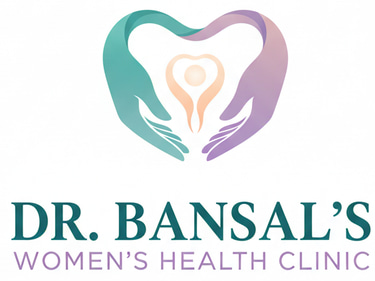Pelvic Inflammatory Disease (PID) Treatment in Indore
Dr Bansal's Women's Health Clinic
Pelvic Inflammatory Disease (PID)
Pelvic Inflammatory Disease (PID) is an infection of the female reproductive organs, often caused by bacteria that spread from the vagina to the uterus, fallopian tubes, or ovaries. It is commonly associated with sexually transmitted infections (STIs), particularly Chlamydia trachomatis and Neisseria gonorrhoeae. Preventing PID focuses on reducing the risk of STIs and maintaining good reproductive health.
Prevention includes safe sexual behaviors, such as using condoms correctly and consistently, reducing the number of sex partners, and having all partners tested and treated for STIs. Other ways to help prevent PID include routine gynecologic examinations and early treatment of any vaginal or cervical infections.
Education and awareness are key to prevention: the methods of infection spread, the recognition of early symptoms, and seeking medical attention on time can significantly reduce the risk of developing PID and its complications, such as infertility or chronic pelvic pain.
Prevention of Pelvic Inflammatory Disease (PID)
Practice safe sex:
Always use condoms during sexual intercourse.
Limit the number of sexual partners.
Avoid sex with people who have multiple sexual partners.
Regular health check-ups:
Get regular gynecological exams and STI screenings.
Encourage your partner to get tested and treated for infections.
Early infection management:
Treat any sexually transmitted infection, such as chlamydia or gonorrhea, right away.
Complete the full course of prescribed antibiotics.
Avoid douching:
Douching can push bacteria into the organs of reproduction and increase infection risk.
Education and awareness:
Learn the symptoms of PID, including lower abdominal pain, fever, and unusual discharge.
Early medical consultation is necessary if any symptoms appear.
Types of Prevention for PID
Primary Prevention:
Aims to prevent the disease before it occurs.
Focuses on the practice of safe sex, like the use of condoms, having fewer sexual partners, and regular STI testing.
Includes health education on sexual health and infection prevention.
Secondary Prevention:
Emphasizes the need for early detection and timely treatment of sexually transmitted infections to avoid the development of PID.
Includes routine medical care, screening for chlamydia and gonorrhea, and early antibiotic treatment when infections are detected.
Tertiary Prevention:
It aims at minimizing complications and recurrence among patients who already suffer from PID.
It includes proper medical treatment, follow-up care, and counseling regarding safe sexual behavior in order to avoid reinfection.
Might also involve the management of long-term effects, including infertility and chronic pelvic pain.
Wellness
Dr. Shreyas Bansal has over 46 years of experience in supporting women’s health and wellness. At Dr. Bansal’s Homeopathy Clinic, located at 2 Manish Bhag, Sapana Sangeeta Road, Indore, we offer personalised and gentle homeopathic care for women of all ages. Our treatments focus on balancing hormones, improving overall well-being, addressing menstrual and menopausal concerns, and promoting long-term health—helping every woman feel confident, healthy, and cared for naturally. Best Gynaecologist in Indore
Contact
Support
(+91) 9111110238
© 2025. All rights reserved.
